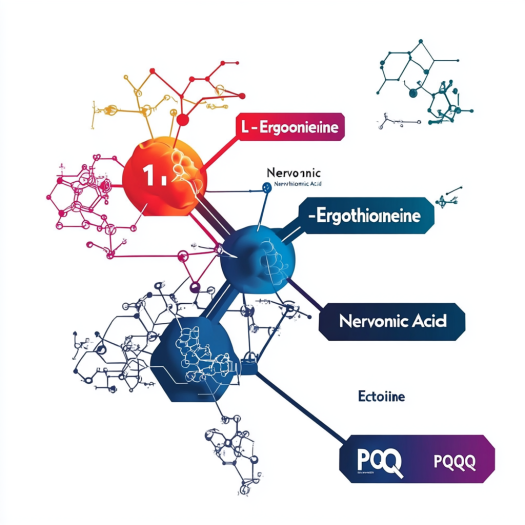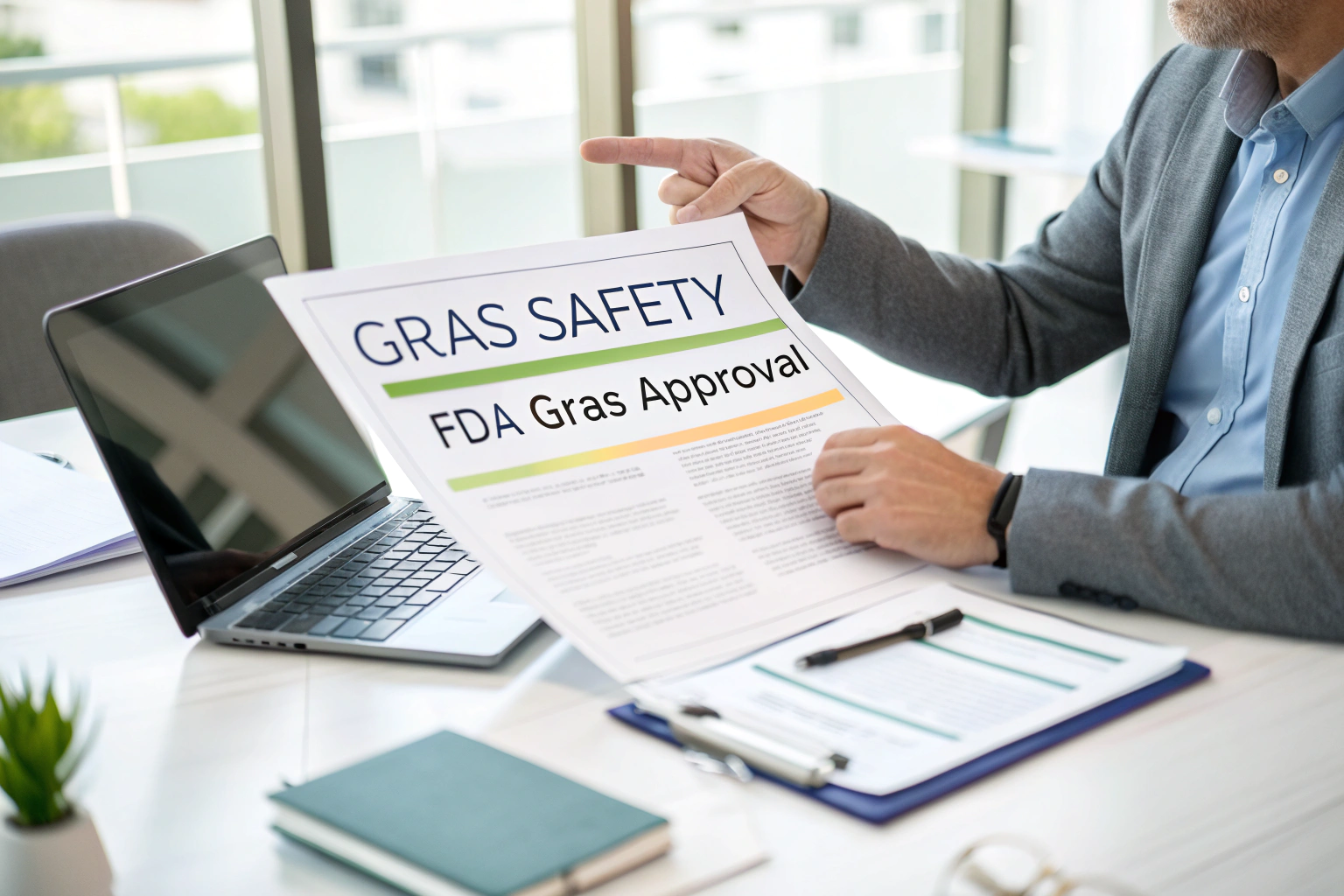
The first time I held a bottle labeled “PQQ 20 mg,” I wasn’t just curious—I was cautious. Is this really approved in the U.S.?
Yes, PQQ (Pyrroloquinoline Quinone) is GRAS-approved in the USA for use in foods and dietary supplements, meaning it is considered safe under the Federal Food, Drug, and Cosmetic Act when used as intended.
If you’re developing or sourcing PQQ-based products for the U.S. market, that little five-letter word—GRAS—can make or break your launch.
What Does GRAS Actually Mean for PQQ in the U.S.?
Every time I explain GRAS to new clients, I start with this:
GRAS (Generally Recognized As Safe) is a regulatory classification by the FDA that allows an ingredient like PQQ to be used in food, beverages, and supplements without undergoing formal pre-market approval, provided it has strong safety evidence and expert consensus.
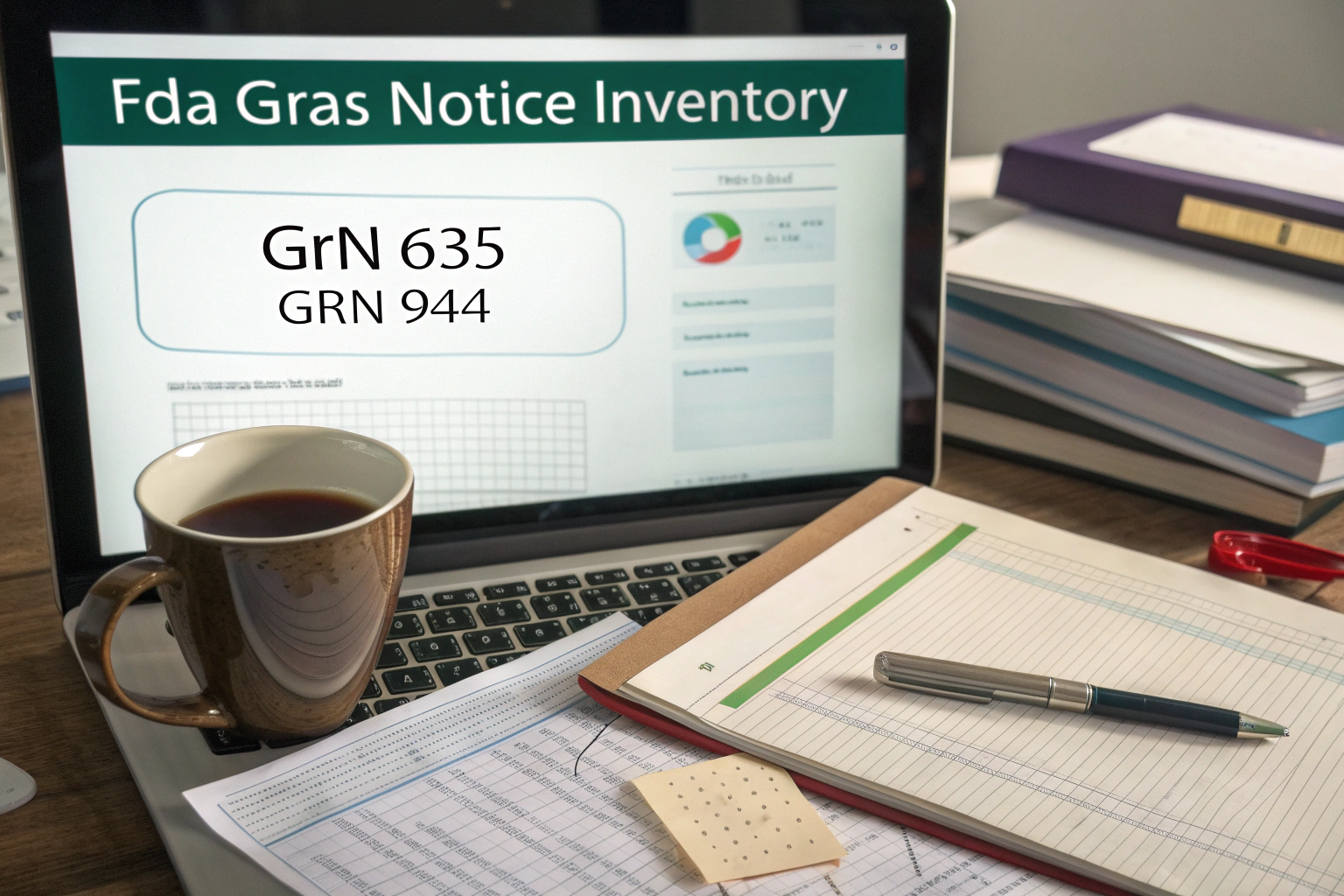
To someone unfamiliar with U.S. regulations, GRAS might sound like a casual stamp of approval. It’s not. It’s a big deal.
There are two types of GRAS status:
- Self-affirmed GRAS: The manufacturer assembles safety data and expert review without notifying the FDA.
- FDA-notified GRAS: The company submits the full file to the FDA, and the FDA issues a “no questions” letter.
Let’s take a look at how this plays out for PQQ:
| GRAS Type | Status | Notes |
|---|---|---|
| Self-affirmed GRAS | ✅ Achieved | Filed by several ingredient manufacturers between 2014–2017 |
| FDA GRAS Notification | ✅ No Objection | FDA responded with “no questions” to submissions like GRN No. 635 |
| Approved Uses | ✅ Supplements, foods, beverages | With defined dosage and population limits |
| CAS Number | 72909-34-3 | For PQQ disodium salt |
So yes—PQQ is GRAS in the U.S., as long as your formulation stays within approved usage guidelines.
What Did the FDA Actually Say About PQQ’s GRAS Status?
I remember digging through the GRAS Notice Inventory late at night (yes, regulatory work isn’t always glamorous) just to be absolutely sure.
The FDA responded to multiple GRAS notices for PQQ (such as GRN 635 and GRN 944) with “no questions,” meaning the agency did not object to the notifier’s conclusion that PQQ is safe for its intended uses.
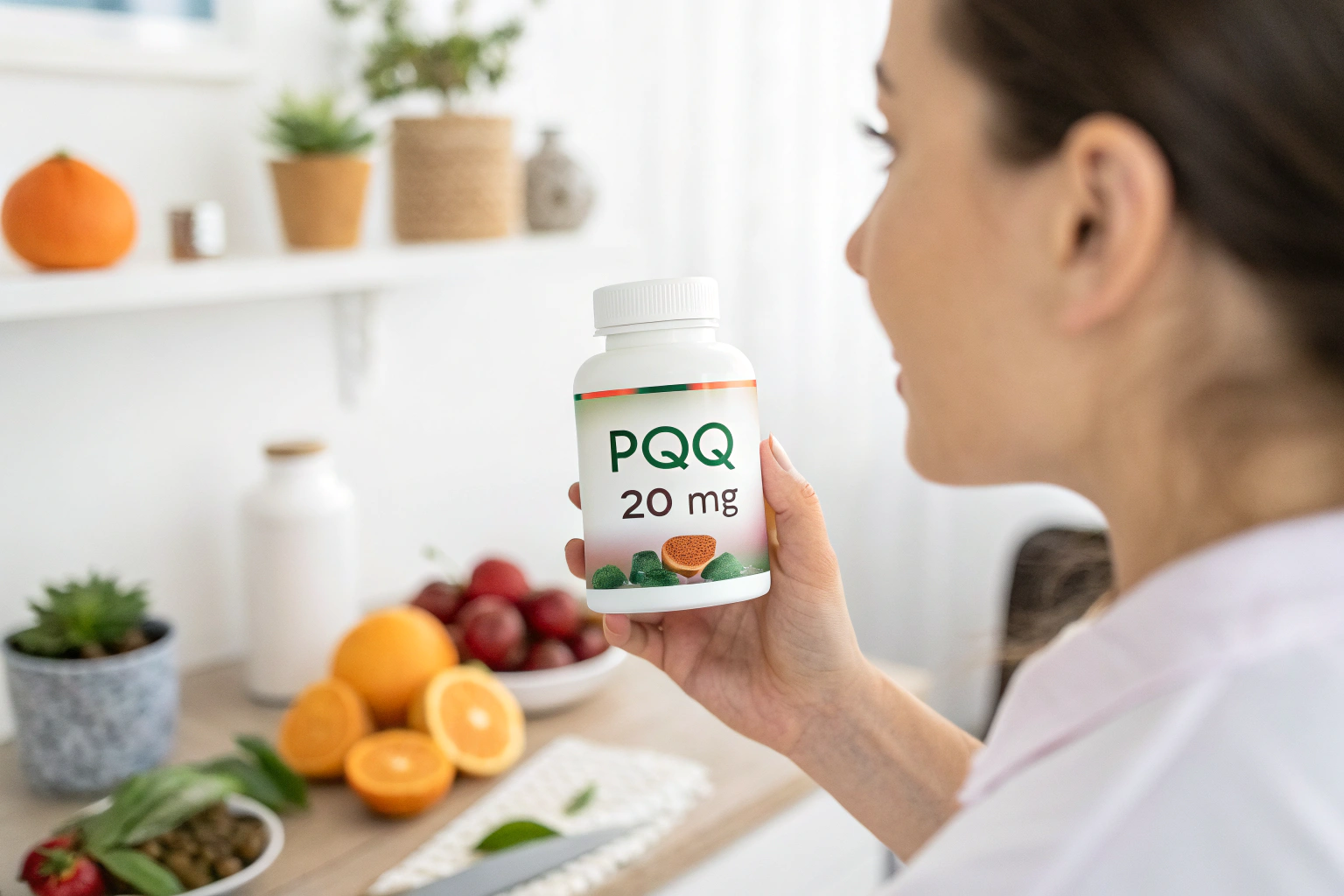
Let me break that down.
In GRN No. 6351, submitted by Mitsubishi Gas Chemical Company2, the proposed uses included:
- Nutritional beverages
- Energy drinks
- Food bars
- Capsules and tablets for adults
The maximum daily intake was capped around 20 mg/day, and the FDA’s response?
“The agency has no questions at this time regarding the notifier’s conclusion that PQQ is GRAS under the intended conditions of use.”
That’s as close as you get to a green light in the world of U.S. food safety.
Here’s a sample summary of relevant FDA GRAS responses:
| GRAS Notice No. | Submitted By | Intended Use | FDA Response |
|---|---|---|---|
| GRN 635 | Mitsubishi Gas Chemical | Beverages, foods, supplements | No questions (2016) |
| GRN 944 | General ingredient supplier | Food bars, drinks, multi-vitamins | No questions (2020) |
These public records mean buyers, formulators, and retailers in the U.S. can move forward confidently.
You can also verify this by searching the FDA GRAS Notice Inventory.
What Are the GRAS-Approved Applications of PQQ in the U.S.?
Now here’s where it gets exciting from a product innovation perspective.
PQQ’s GRAS status in the U.S. covers a range of applications, including functional beverages, meal replacement bars, nutritional powders, and dietary supplements—provided daily intake does not exceed 20 mg.
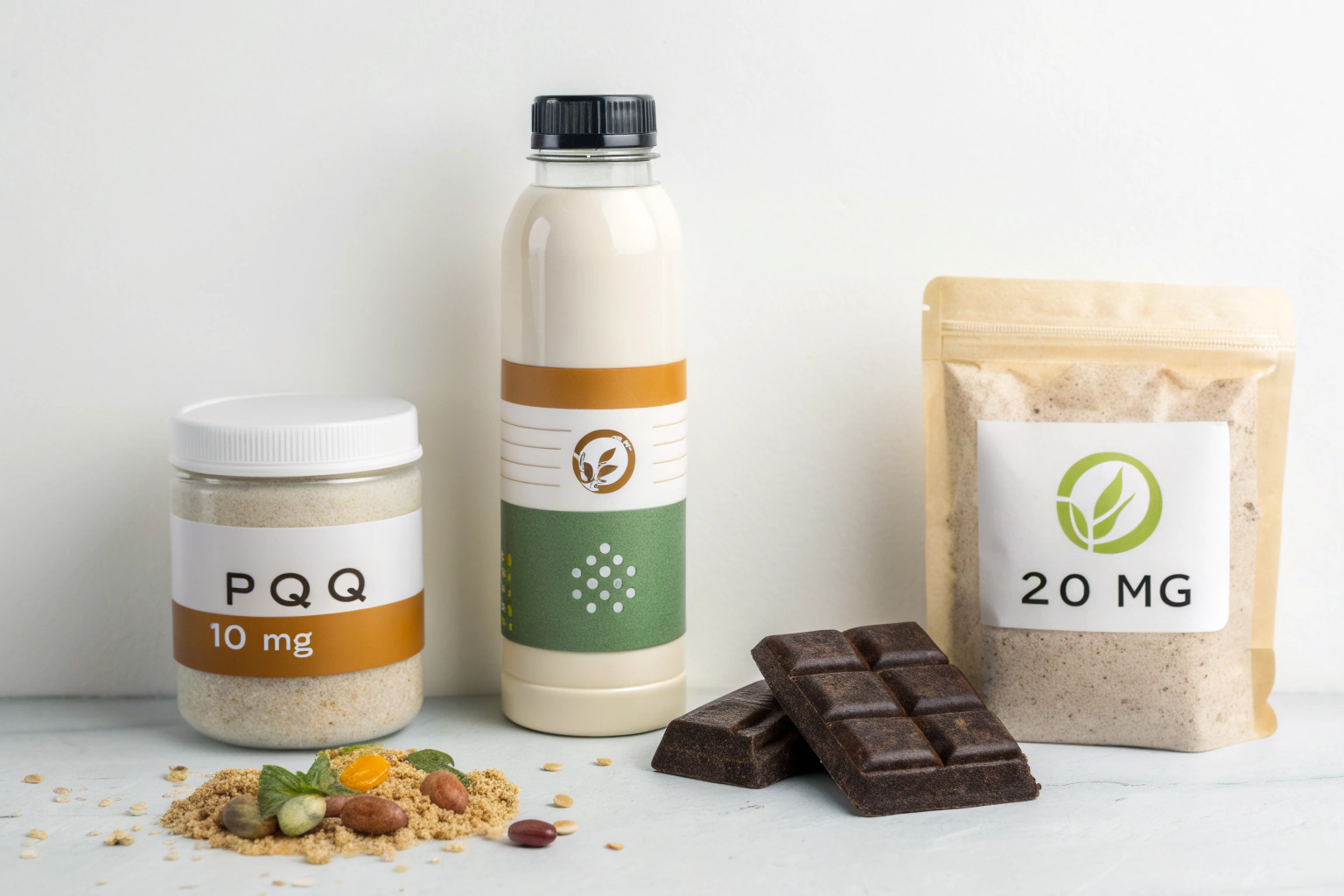
Let me show you just how flexible this ingredient is in GRAS-approved formats:
| Product Format | Max Daily Use | Use Context | Target Consumer |
|---|---|---|---|
| Nutritional beverages | 10–20 mg | Brain support, mitochondrial energy | Adults 18+ |
| Protein bars | 5–10 mg | Cognitive + physical performance | Busy professionals |
| Capsules/Tablets | 20 mg | Nootropic support, aging support | Older adults |
| Functional powders | 5–15 mg | On-the-go mixes, health boosters | Wellness shoppers |
Whether you’re building a new energy shot or revamping a nootropic capsule, PQQ can fit—as long as you respect the limit and usage category.
At Santa Biotech’s PQQ product page, we offer GRAS-compliant PQQ manufactured via fermentation, solvent-free, and purity-verified—ideal for U.S. formulation needs.
What Are the Labeling Requirements for PQQ in the USA?
If you’re like me, labeling compliance always makes your palms sweat a bit. But don’t worry—PQQ actually fits smoothly into standard supplement labels.
To label PQQ legally in the U.S., brands must include the correct ingredient name (typically “PQQ disodium salt”), specify the exact dosage per serving, avoid disease claims, and follow FDA supplement labeling guidelines.
Here’s a simplified label structure:
| Label Element | Example | Required? |
|---|---|---|
| Supplement Facts | “PQQ disodium salt – 20 mg per capsule” | ✅ Yes |
| Ingredient listing | Must use CAS-compliant name | ✅ Yes |
| Health claims | “Supports cellular energy” (structure-function) | ✅ Yes |
| Warning label | “Not for use by children or pregnant women” | 🟡 Optional depending on dose |
| Manufacturer contact | Name, address, phone or website | ✅ Yes |
Avoid phrases like:
- “Treats Alzheimer’s”
- “Prevents neurodegeneration”
- “Clinically proven cure”
Instead, go for:
- “Supports mitochondrial health”
- “Helps promote cognitive function”
- “Aids in cellular energy metabolism”
These subtle shifts make a world of difference to regulators—and still speak to your customer.
How Does PQQ Compare to Other GRAS Antioxidants?
As someone who works with a range of antioxidant ingredients, I find PQQ fascinating—not just because it’s effective, but because it plays well with others.
PQQ stands out among GRAS-approved antioxidants due to its mitochondrial action, stability, and synergy with ingredients like CoQ10, making it a powerful choice for U.S. supplement brands seeking science-backed differentiation.
Here’s a quick comparison of PQQ versus other popular GRAS antioxidants:
| Ingredient | GRAS Status | Main Benefit | Synergistic With |
|---|---|---|---|
| PQQ | ✅ Yes | Mitochondrial biogenesis | CoQ10, B-vitamins |
| CoQ10 | ✅ Yes | ATP energy production | PQQ |
| Alpha Lipoic Acid | ✅ Yes | Antioxidant recycling | Vitamin C, E |
| Vitamin C | ✅ Yes | Immune + antioxidant support | Most vitamins |
| Ergothioneine | ✅ GRAS | Cell protection | Glutathione |
When combined, PQQ + CoQ10 becomes a “mitochondria power couple.” We’ve helped clients build formulations that lean into this synergy to improve customer retention and user satisfaction.
If you’re considering multi-ingredient formulations, PQQ offers a GRAS foundation to build from—especially for brain health, anti-aging, or fatigue-targeted products.
Conclusion
Yes—PQQ is GRAS-approved in the U.S. for supplements and food use, and it’s opening powerful doors for safe, science-driven innovation.

